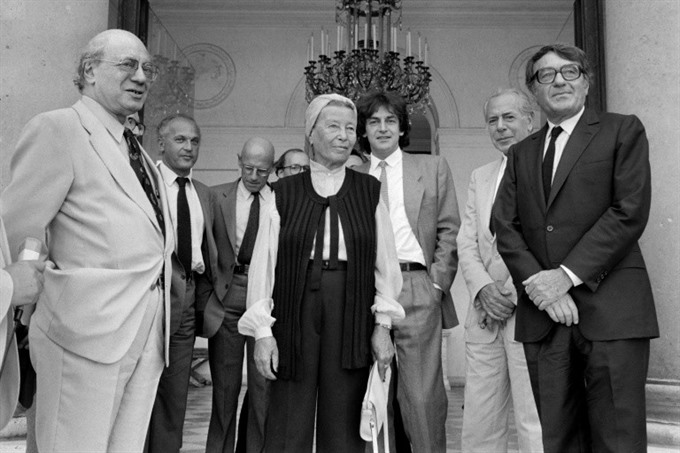 Life & Style
Life & Style

The fourth volume of Michel Foucault's ground-breaking The History of Sexuality will be published Friday, 34 years after the death of the French philosopher.
 |
| Michel Foucault, third from left, pictured in 1982 alongside fellow intellectuals Maxime Rodinson, Pierre Nora, Simone de Beauvoir, Alain Finkielkraut, Jean Daniel and Claude Lanzmann. — AFP Photo |
PARIS — The fourth volume of Michel Foucault’s ground-breaking The History of Sexuality will be published Friday, 34 years after the death of the French philosopher.
His unfinished Confessions of the Flesh — which deals with the prickly question of consent — is finally being released by his French publishers Gallimard after his literary executors decided the time was ripe for his ideas.
With the rise of the #MeToo movement against sexual harassment, his editor Frederic Gros said "the moment has come for the publication of this major and original work."
Foucault began the book near the end of his life in the early 1980s when he was already ill with AIDS, of which he would die in June 1984.
The book begins by looking at how the first fathers of the Christian church dealt with sexuality, including St Clement of Alexandria and St Augustine of Hippo.
Foucault claimed that contrary to popular belief, early Christianity was no more uptight about sex than the pagans were.
In fact, he argued that it was a lot more permissive than pagan philosophers.
"These (repressive) principles somehow migrated into Christian thought and practice from pagan practice," the philosopher wrote.
He insisted that even if to some the norms set down by them seem repressive, at least they talked openly about sexuality, adultery, chastity, homosexuality and masturbation, and never made sex a taboo subject.
And from the very earliest Christian times, they were clear on the need for consent, and that rape should be outlawed, he argued.
The author of Madness and Civilisation and The Order of Things, who taught at the University of California at Berkeley, had intended to publish The History of Sexuality in six volumes, Gros said.
But his illness changed his plans, and he published the second and third volumes, The Use of Pleasure and The Care of The Self weeks before he died in 1984. — AFP